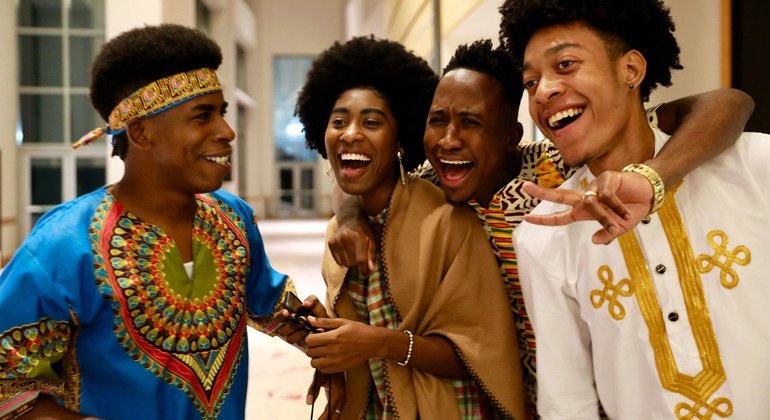They stressed that more than ever, the world urgently needs humanity to unite and collaborate in a spirit of equality and non-discrimination.
“This demands political will to eliminate all forms of racial discrimination, inequality and stratification at both the domestic and international levels,” they said in a statement.
Achieving this goal means that inequalities within and among countries will need to be drastically decreased, and the legacies of colonialism, apartheid, enslavement and genocide effectively resolved, they added.
‘A cause for humanity’
The General Assembly proclaimed 2015 to 2024 as the International Decade for People of African Descent, with actions at the national, regional and global levels.
Objectives include promoting respect, protection and fulfilment of all human rights and fundamental freedoms by people of African Descent, and greater knowledge of their diverse heritage, culture and contributions to society.
“The cause of people of African descent for recognition, justice and development is a cause for humanity,” the experts stated.
Sustain the momentum
They said the UN Decade, together with the International Convention on the Elimination of Racial Discrimination and the Durban Declaration and Programme of Action, have contributed significantly to combatting racism, racial discrimination, xenophobia, and related intolerance.
“However, there is much more work to be done and the momentum gained must be sustained,” they said.
They urged the General Assembly to consider proclaiming a second International Decade for People of African Descent from 2025 to 2034, “with a view to taking further action to address systemic discrimination and legacies of the past to bring about the full recognition, justice, and development for people of African descent worldwide.”
‘Pervasive discrimination’ persists
The 13 experts were appointed by the UN Human Rights Council and are not UN staff, nor are they paid for their work.
They issued their appeal on the eve of the International Day for People of African Descent.
In his message for the Day, UN Secretary-General António Guterres highlighted “the enormous impact” that both the African continent and people of African descent have had on the development, diversity and richness of world civilizations and cultures, which constitute the common heritage of humankind.
“At the same time, we acknowledge the pervasive discrimination faced by people of African descent around the world, and the many obstacles they face to realising their full human rights,” he said.
Promote equality, combat racism
He noted that recent years have seen renewed momentum for change, based on the global anti-racism movement of 2020. Millions of people took to the streets of major cities worldwide following the police killing of George Floyd, an African American man, that May.
Mr. Guterres pointed to UN initiatives, such as the establishment of the Expert Mechanism to Advance Racial Justice and Equality in the context of Law Enforcement, and the Permanent Forum on People of African Descent, as a testament to the collective aspirations of the African diaspora for justice and equality worldwide.
The Secretary-General has also made anti-racism a management priority at the UN, where he has appointed a Special Adviser and team charged with overseeing implementation of a Strategic Action Plan on Addressing Racism and Promoting Dignity for All.
Call to action
“Today, as we mark the International Day for People of African Descent, I reiterate the call of the UN High Commissioner for Human Rights to use the commemoration of the 75th anniversary of the adoption of the Universal Declaration of Human Rights to announce and take prompt and robust steps to advance equality and combat racism, racial discrimination and xenophobia,” he said.
The UN chief urged countries to take concrete steps, with the full participation of people of African descent and their communities, to tackle old and new forms of racial discrimination; and to dismantle entrenched structural and institutional racism.
“Today and every day, we must continue to speak out against all ideas of racial superiority, and work tirelessly to free all societies from the blight of racism,” he said.



